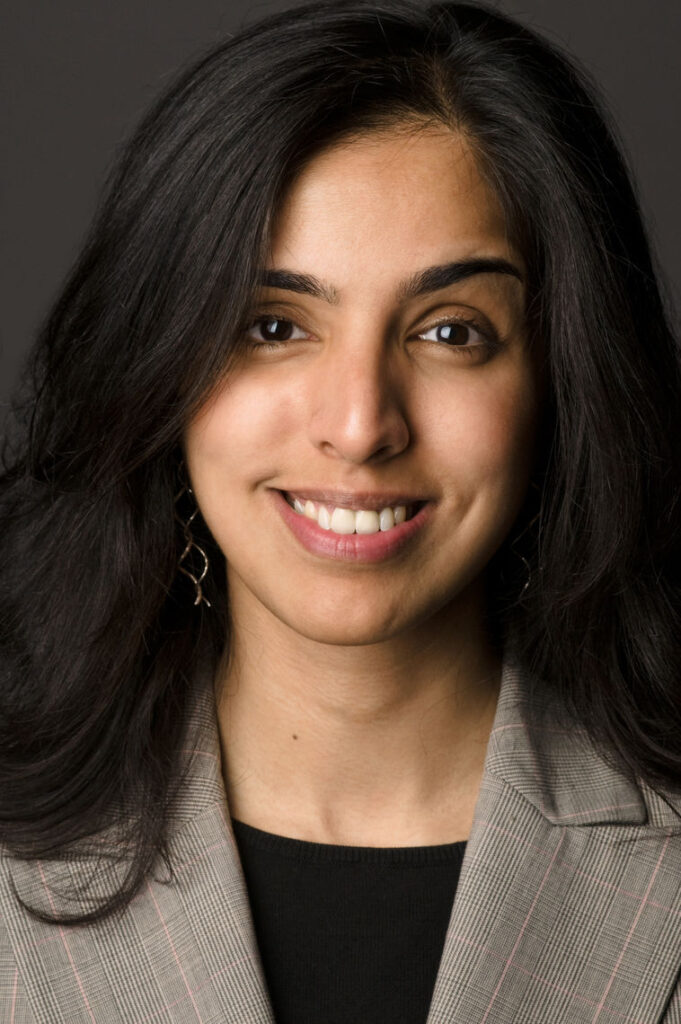- Interview
An interview with Daisy Soros by Aarti Shahani (2010 Fellow)
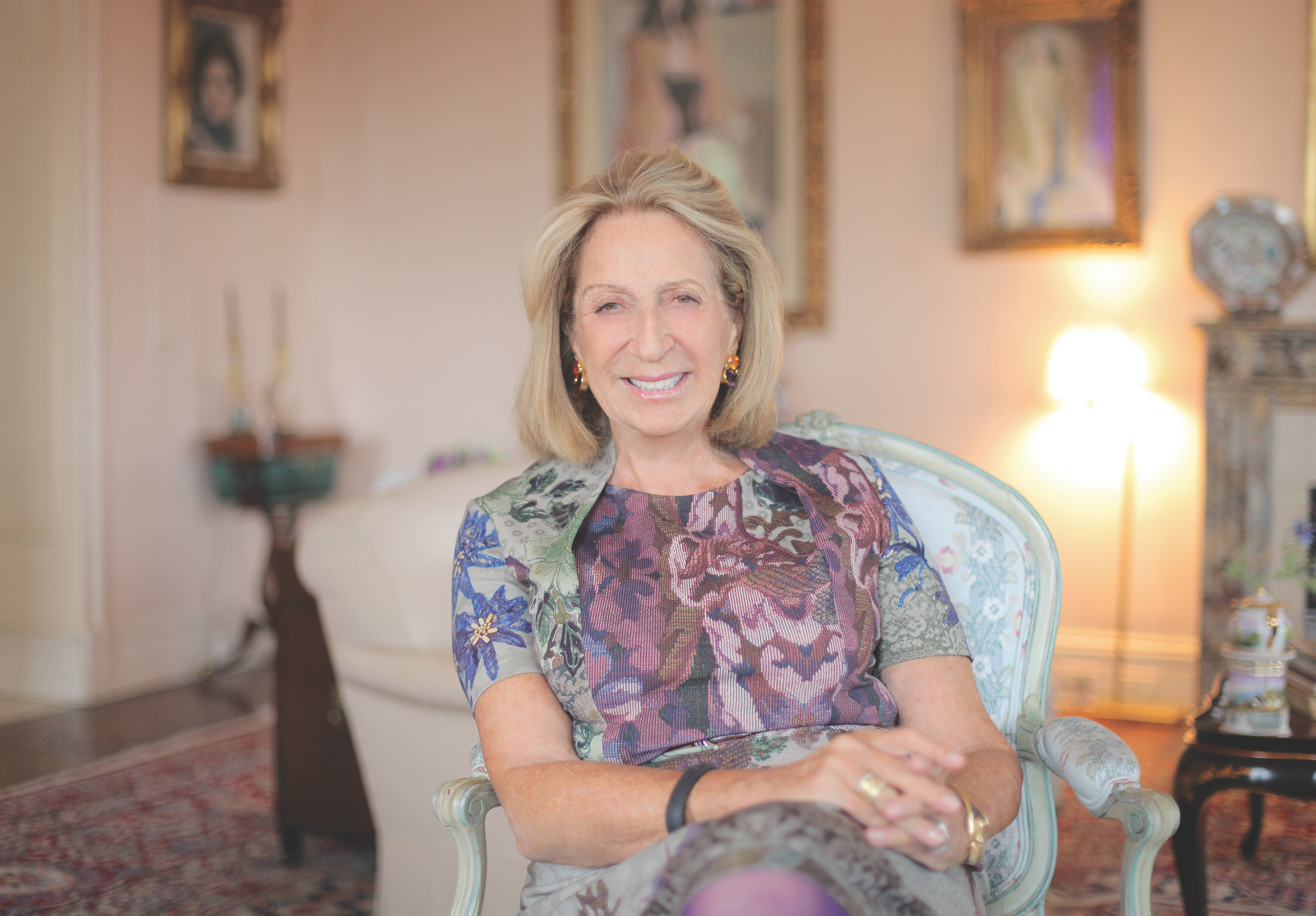
Why start a Fellowship? You could have started an issue-based non-profit or dedicated yourself
to the arts.
We were doing very well financially, and even though my husband was an engineer, he didn’t
like the bricks and mortar. He did not like names on buildings. So we started talking about
where to put our money. We were people-oriented. People are tangible. That’s the conclusion
he came to after a week of thinking about it.
So the Fellowship was just an engineer’s calculation about good design?
No, of course not—it was very personal. Paul arrived in this country with $18 and a camera. It was after he defected from the 1948 Olympics in St. Moritz, Switzerland. He’d been a member of the Hungarian National Ski Team. He was accepted to Harvard, MIT, and Stanford. The cost was $20 per point in each subject. Someone told him that at Brooklyn Polytechnic, it was better, $13 a point. So he went there and had a hand-to-mouth existence. He’d eat just an apple for some of his meals. He always said if someone just gave him ten thousand dollars, his life would have been different. Having a higher lifestyle, especially while studying, was what he wanted for others.
You both ended up being very successful. Maybe life would have been easier. But you don’t seem to value easy lives—at least not if you look at whom you fund.
One of our first Fellows was Lera Auerbach. She is a Russian, a concert pianist. She won the Pushkin Prize in Poetry. She is erudite, accomplished. An intellectual with a sense of humor. She paints and sculpts. She writes operas. And what drives her? She suffered a huge loss. At a young age, she left her parents back in Russia. They couldn’t send her anything more than books. And she even lost all of that, in a fire, along with all her manuscripts. She spoke at my husband’s memorial. I’m impressed by people who know how to bear their losses, stand up to problems or rejections.
Is this Fellowship your husband’s main legacy?
Besides his grandchildren and the things he built, he created a whole new method of port installations and a loading and unloading bulk materials system with projects in more than 100 countries. My husband was a very unique person. Engineers usually think in the box. It’s black and white. He wasn’t like that. His mind jumped between disciplines. In his field, Paul was a giant. But engineering was not as popular as law and economics. His character was that of an introvert. He wouldn’t say, “you’re the most wonderful, beautiful woman.” He wasn’t a social butterfly at all. Just a wise man with a twinkle in his eye.
(It’s true. His eyes really did twinkle.) He sounds quite different from his little brother George in terms of personality and approach to philanthropy.
Yes. George wanted to be a philosopher all his life. He had his idols and ideas. Paul was very into concrete things. They both belonged to the Council on Foreign Relations. One day a guy came up to them and told them how they look so much alike. My husband said, “except for our profiles. My brother has a high one. I have a low one.” They both believed in taking risks. Paul was once honored at his alma mater. He was already in a wheelchair then. He spoke to the students about entrepreneurship and told them, “Don’t ever be a corporate VIP.” The head of AT&T was the speaker right after him. It wasn’t his most diplomatic moment!
You talk a lot about your husband. Any part of your story I should know?
I had deportation proceedings against me for a few years. I came as a student. And I was to go to UCLA and marry somebody in California. But I got as far as New York and realized I wouldn’t go further. So I had to find a university to take me. Columbia took me. Then I got married to Paul and stopped going to school. I was on a student visa. They wanted to deport me, and my husband’s papers couldn’t help me because of some quirk in the law.
I was told, “if you are in trouble, see your congressman.” And so I did. It was Lester Holtzman. I was 22. There had to be a way for me. And we found it. He put in a private bill for me so I could stay in this country. A private bill is a law passed by Congress, which applies only to a specific person. It’s an extraordinary feat.
You got the entire Congress to agree?
Yes. This was in 1952. It was a very different time.
What’s your take on immigration reform? Will it pass?
I don’t think it’ll pass, and I don’t understand why. Maybe it’s jealousy or a superiority complex. I believe the mindset among some people is no different from anti-Semitism in a way. Look what they’re doing to the poor children trying to come here.
The Fellowship community is an immigrant community. If Congress called on you to testify,
what would you tell them?
Oh my goodness: here is the living proof! Here are the two-legged people—all immigrants and their children—serving this country. We have 15 clerks for Supreme Court Justices, presidential speechwriters, an ambassador, many inventors, amazing musicians, and the next Surgeon General of the U.S., if confirmed. The original ones who came on the Mayflower—did they do so much better than my Fellows? No. Congress should have to hear something like that.
I brought my sister to a PD Soros event once. She joked: “It’s who you’d imagine the president would put in a room if a meteor hit Earth and a tiny group had to be salvaged to reproduce the human race.”
That’s cute.
The PD Soros Fellowship is backed by a $75 million charitable trust. It’s clearly a long-term project. What’s the next step?
I don’t just give and forget. I like to hold onto the people. I care what their future will be. I asked a Fellow who got the Rhodes and our Fellowship about the difference between the two. He said: “yours has a heart.” I like that. Fellows keep in touch. When my husband died, I got at least a hundred letters from them. Not just: “I’m sorry.” Real letters. I want this to be a group in the intellectual world. In medicine, law, composing, painting—a select group who started off pretty much at the same level and soared to their potential.
Aarti Shahani, 2010 Paul & Daisy Soros Fellow, is a technology correspondent for NPR.
This interview has been edited and condensed. ∎
Keep Exploring
-
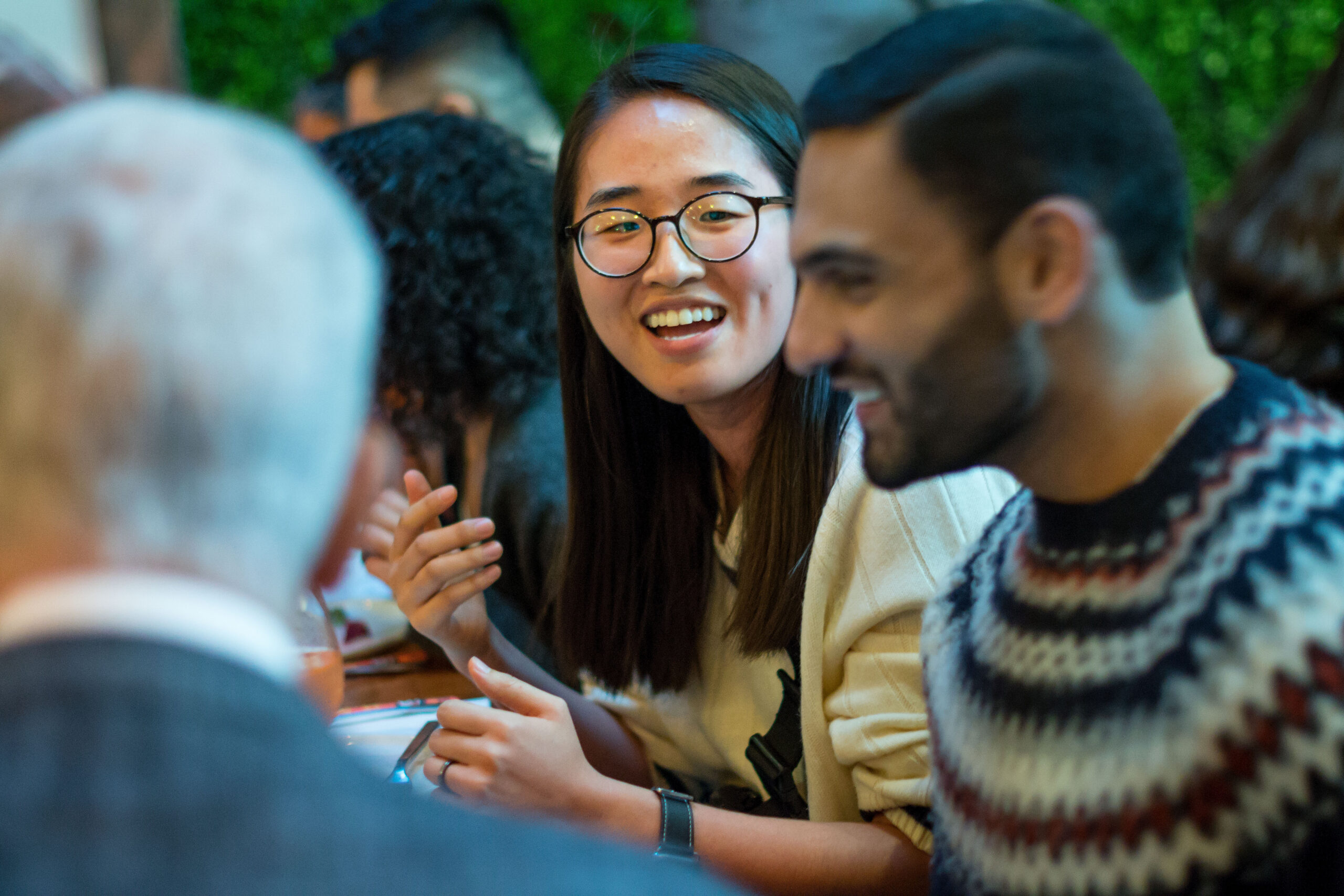 Read more: Kathy Ku Steps into Leadership as PDSFA Chair
Read more: Kathy Ku Steps into Leadership as PDSFA Chair- Board of Directors
- Fellowship News
Kathy Ku Steps into Leadership as PDSFA Chair
-
 Read more: Q&A with MD/PhD Student Silvia Huerta Lopez
Read more: Q&A with MD/PhD Student Silvia Huerta LopezQ&A with MD/PhD Student Silvia Huerta Lopez
-
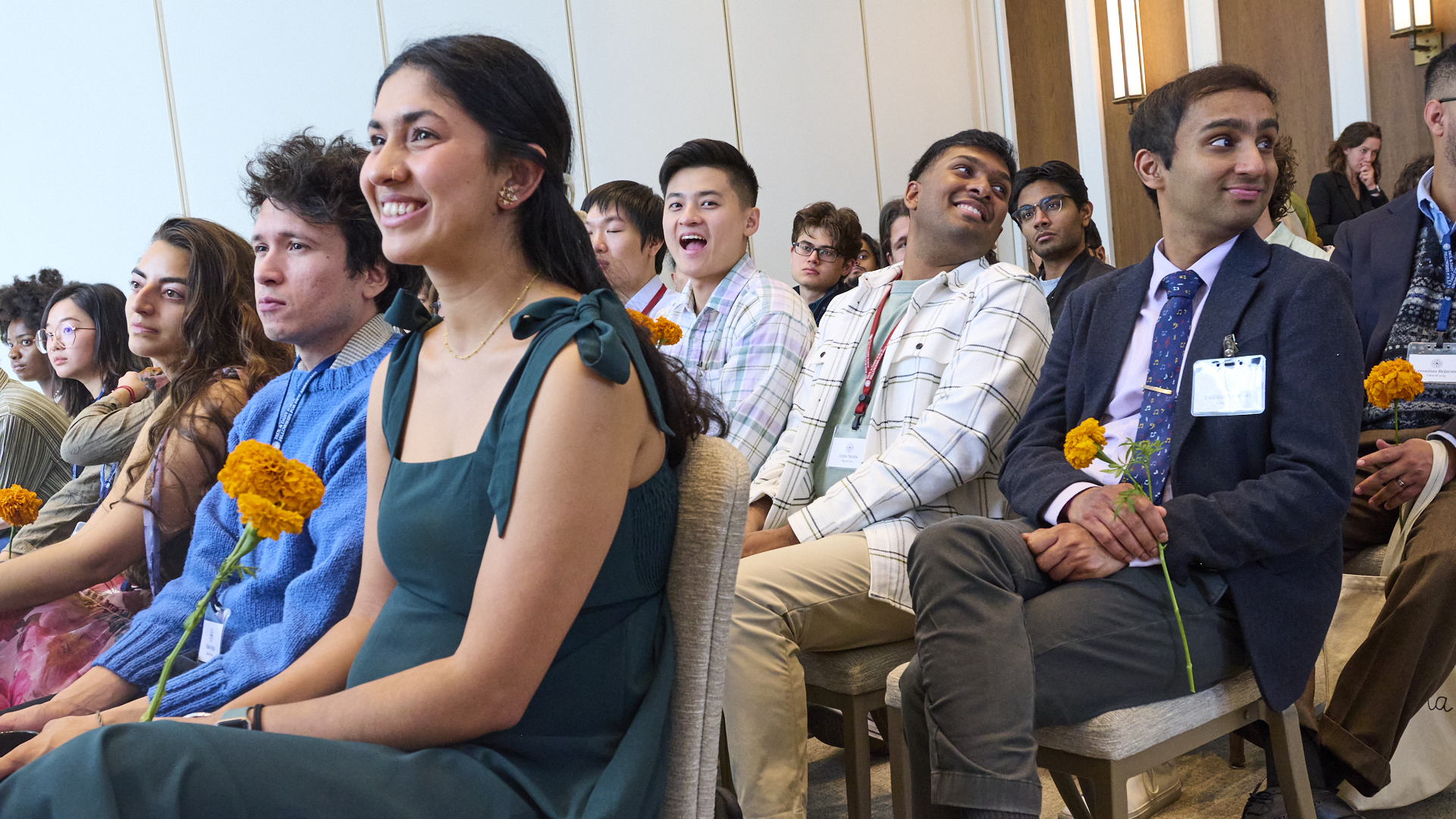 Read more: PD Soros Eligibility Guide for PhD Applicants
Read more: PD Soros Eligibility Guide for PhD Applicants- Applicant Information
PD Soros Eligibility Guide for PhD Applicants
-
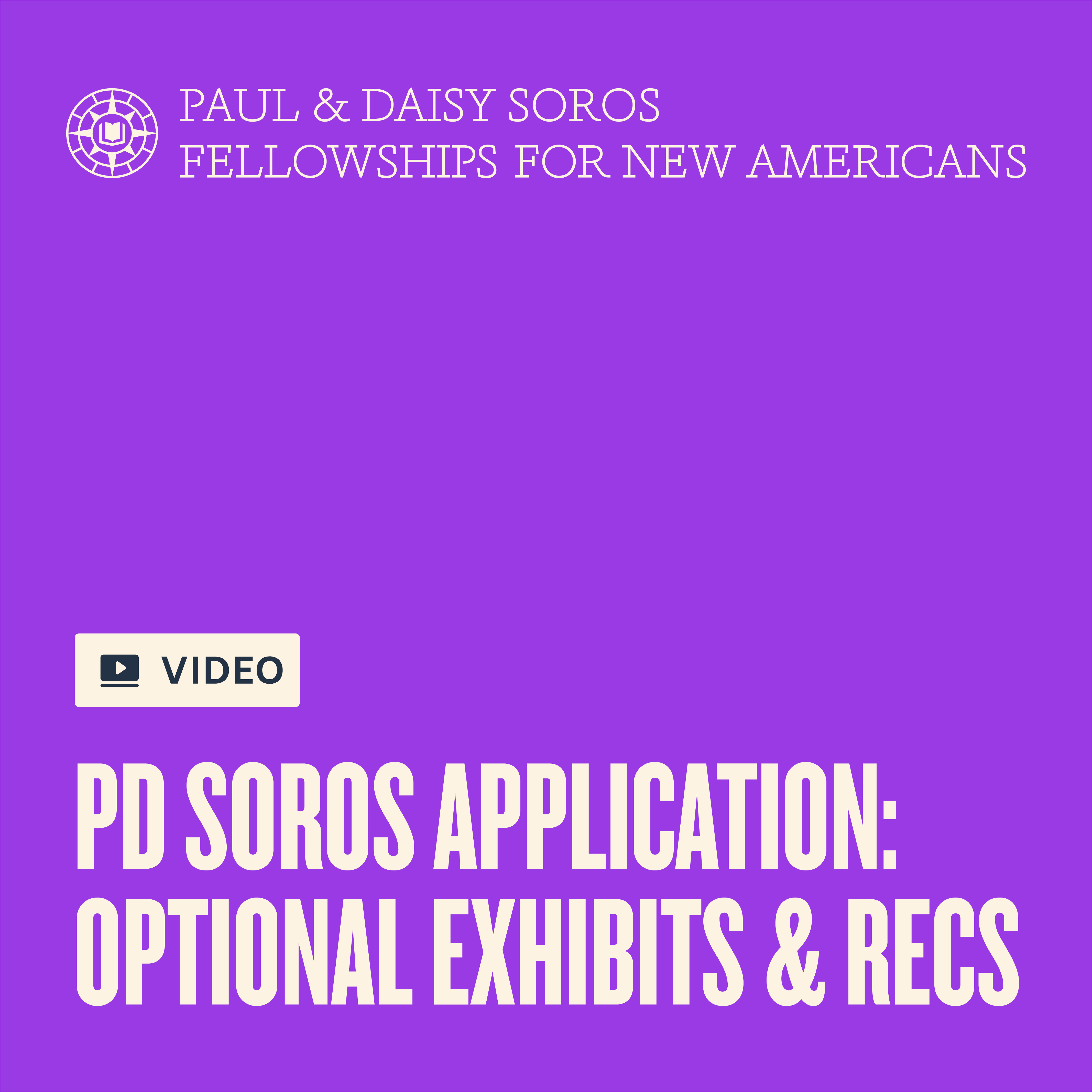 Read more: Watch: Optional Exhibits & Recommendations
Read more: Watch: Optional Exhibits & Recommendations- 2025 Information Sessions
Watch: Optional Exhibits & Recommendations
